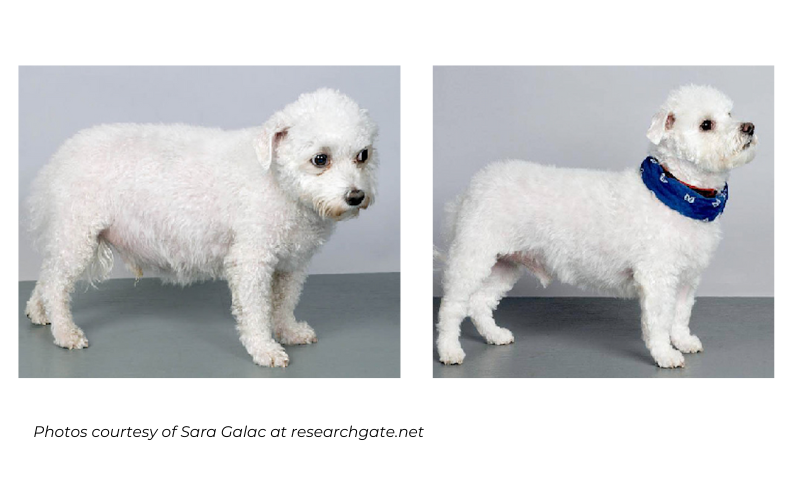Cushing’s disease (hyperadrenocorticism) is a condition where the adrenal glands produce too much cortisol, a hormone that helps regulate various bodily functions like managing stress and keeping blood sugar levels healthy. While it primarily affects middle-aged and older dogs, it can also occur in cats, though less commonly. Excessive cortisol can lead to a range of health issues like hypertension and muscle wasting.
This blog will review how to recognize the signs, how this condition is diagnosed, and how our internal medicine team can help you manage your pet’s symptoms.
Different Types of Cushing’s Disease
Cushing’s disease can be classified into two differing types: pituitary-dependent and adrenal-dependent. While both result in the overproduction of cortisol, there is one key difference between the two.
Pituitary-dependent: Caused most often by a benign tumor and rarely malignant on the pituitary gland and is the most common type and is managed with medication to reduce cortisol production.
Adrenal-dependent: Caused by a benign or malignant tumor on one or both adrenal glands and is managed preferably by surgery to remove the tumor.
Signs and Symptoms
The symptoms of Cushing’s disease may not be noticeable at first, but they often become more pronounced as the condition progresses. Look out for:
- Hair loss or thinning coat
- Increased appetite and thirst
- Increased urination
- Lethargy
- Panting
- Pot-bellied appearance
- Recurrent infections (such as urinary tract infections, ear infections, and skin infections)
- Thin, fragile skin
- Weakness
If you notice your pet presenting any combination of these symptoms, visiting your primary care veterinarian or an internal medicine specialist is important.
Diagnosis and Treatment Options
Cushing’s disease is diagnosed through a series of blood tests to assess your pet’s cortisol levels. In most cases, an ultrasound may be used to evaluate the adrenal glands for any tumors or abnormalities. While treatment depends on the underlying cause, many pets with Cushing’s disease can live a good quality of life. Early diagnosis and a tailored treatment plan are key to successful management outcomes.
Our Internal Medicine Services Can Help
Victoria Vorathavorn, DVM, DACVIM, our board-certified veterinary internist, and Michelle Cieplucha, DVM (Residency Trained in Internal Medicine) can help diagnose and treat even the most complex diseases, including Cushing’s disease. Internal medicine consultations are available by appointment Monday – Friday, 8:00 a.m. – 5:00 p.m. No referral is needed, but we ask that you fill out this medical history form so we can best prepare for your visit. Please call 949-653-9300 to schedule your pet’s visit.


